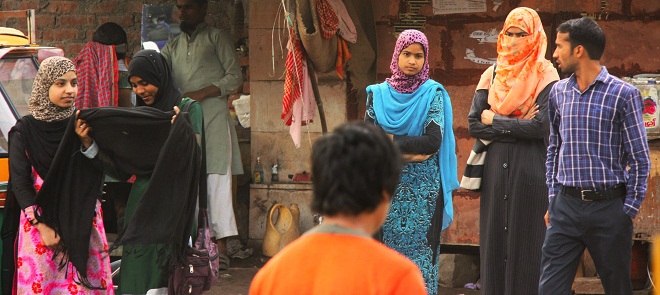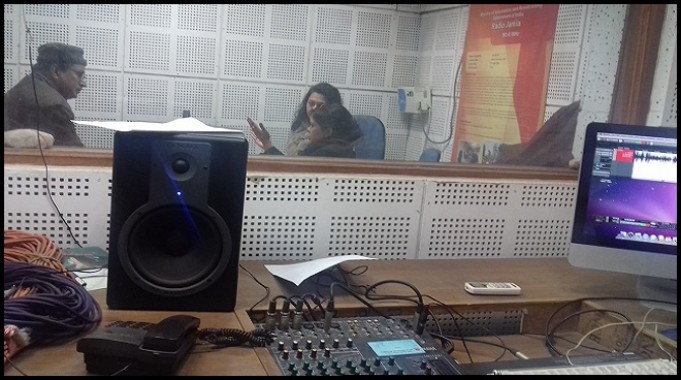Jamia Radio: Hello, hello.....?
Jamia Community Radio studio
If someone asks you “Do you listen to community radio?” you’re probably likely to give them a weird look or ask a counter question such as “Who listens to radio these days?” That was our experience when we went to research the impact of community radio in suburban Delhi.
Jamia Community Radio (JCR) is run by the A. J. K. Mass Communication Research Centre at Jamia Millia Islamia. Launched in 2005, it is transmitted on the frequency 90.4 FM and can be heard clearly within a radius of 10 kilometres.The programme runs in two shifts, from 10 am to 1 pm and from 2 pm to 5 pm. The evening broadcast is usually repeated as the morning broadcast of the second day.
The Hoot visited three locations in Jamia Nagar: the commercial market of Sarai Julena and two clusters of Jasola Gaon, and interviewed 120 people. Of these, only 11 had heard of JCR and nine of the 11 could not remember anything about the programmes. Only two were regular listeners.

People in Jasola Gaon. Picture credit: Fatma M Khan
Our informal interviews began in small tea shops and manufacturing units. When we asked “Do you listen to the radio?” we got blank looks. The first ‘yes’ was from Afzal, a shop assistant at a cyber café. “Jab mauka milta hai tab Jamia radio zaroor sunta hun”. When asked what kind of shows he liked, Afzal replied ‘the music shows’ because of the ghazals and sufi music.
JCR aims to cater to the needs of the local population. Instead of national or state level news, it gives community information about the events being held at the university and in the neighbourhood. Social issues are also covered. It has run series on domestic violence, diseases and their prevention.
There are women’s programmes such as “Parwaz” which are broadcast on the third Thursday of every month and are dedicated to women’s issues and includes talks on topics such as cottage industries in which experts from NGOs talk about the various opportunities for women, particularly for housewives. Rubina, a 35-year-old who runs a boutique, said that she loved a recent JCR programme about the late former President APJ Abdul Kalam who had inspired her to move ahead in her life.
The entertainment consists of music, both from popular films as well as ghazals and the recordings of specific artists. JCR avoids politics and religion.
When we took our findings to the director of the Jamia Community Radio, Dr. G. R. Syed, he admitted that radio was almost dead in the capital. “The only listeners who remain are those who listen to the radio in their cars and they prefer commercial radio which plays music from films. However, we do get feedback from many groups, such as a bidi mazdoor group in Shaheen Bagh who call in to the station.”
While JCR does not have the resources to conduct extensive feedback studies, Dr. Syed said its main aim was to serve the university by airing notices and announcements about events and broadcasting its cultural programmes.
“The community can also benefit by listening to our programmes. Our aim is not to help the entire population. Even if one individual is helped, we will consider ourselves successful” said Dr. Syed, adding that they were limited by lack of manpower.
JCR is now looking to shift to the internet as a live radio to be accessed through its website here. One group they are hoping to attract is Jamia alumni who, for example, might like to listen to a broadcast of the Convocation Ceremony and other such functions.
Vineeta, a 16-year-old who works as a maid made a valid point when she asked: “Why will anyone listen to the radio in their leisure time when there are plenty of options available like Facebook and Whatsapp? Yes, we will listen to radio if they have programmes where they can tell us about jobs availability, government schemes or any type of vocational courses for uneducated youths like me.”
In all these years, JCR has failed to reach most of the community it aims to serve. Perhaps it should heed Vineeta’s comments by reducing film songs and increasing the programmes which focus more on the problems and difficulties faced by young Indians.







